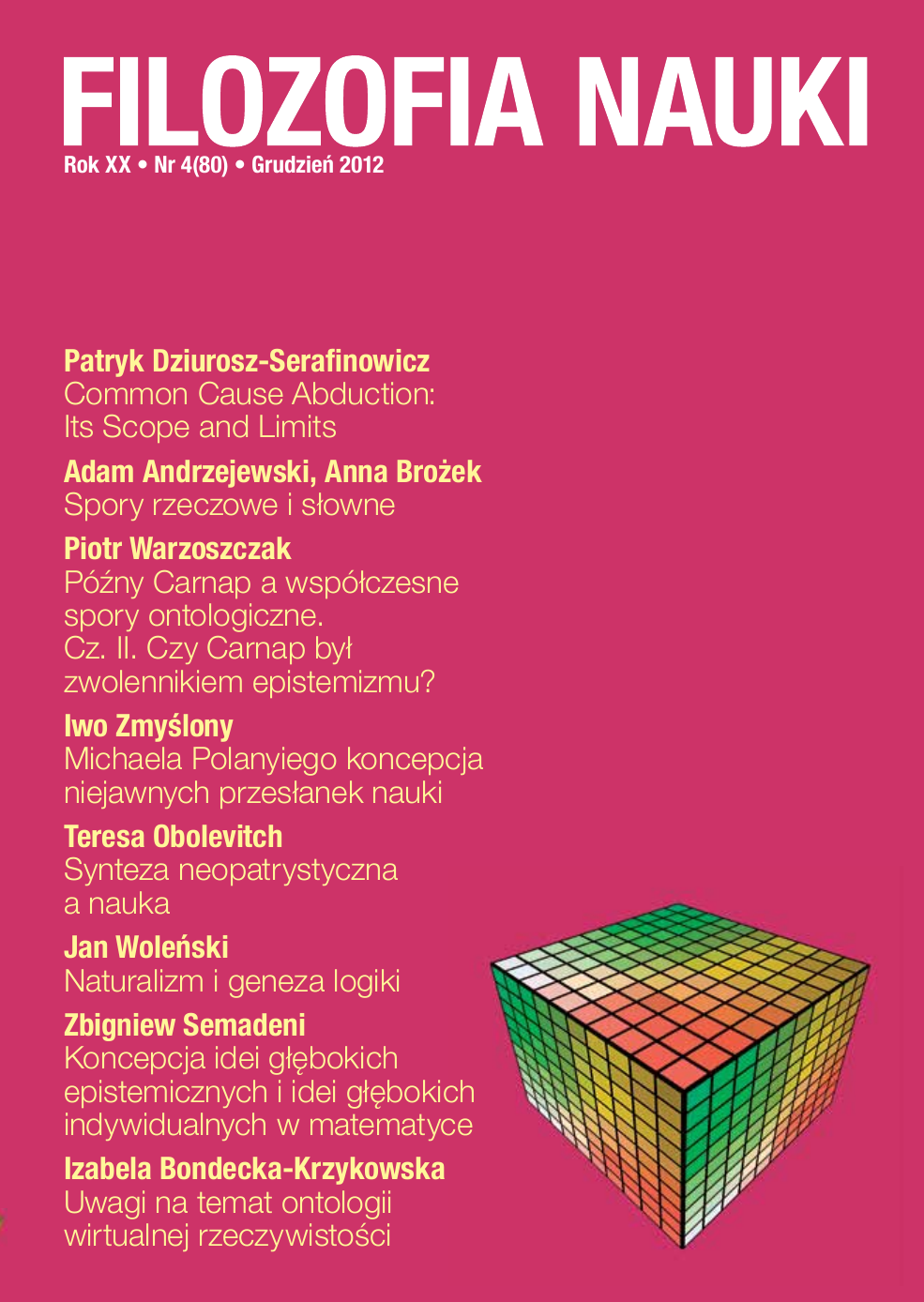Naturalizm i geneza logiki
Słowa kluczowe:
consequence operation, evolution, genetics, deduction, genetic codeAbstrakt
This paper examines the problem of genesis of logic in the light of naturalism as a philosophical view about the nature of knowledge and reality. The main difficulty of naturalism as far as applied to logic consists in reconciling genetic empiricism (all cognition starts with experience) and abstract nature of logic. Anti-naturalism (Platonism, for example) maintains than empiricism is not able to explain how logical theorems as a priori assertions are accumulated. To defend naturalism one should note that experiential character of knowledge can be understood phylogenetically or ontogenetically. The former account is more suitable for naturalism and allows us to investigate genesis of logic by glasses of evolutionary theory. This way can be supplemented by an appeal to genetics. Both theories can explain how logical competence, that is ability to use deduction, arose in humans. The author claims that the structure of the genetic coded has some properties that became transformed into logical rule. Some analogies between consequence operation and topological closure are employed in analysis.Pobrania
Opublikowane
2012-12-01
Jak cytować
Woleński, J. (2012). Naturalizm i geneza logiki. Filozofia Nauki, 20(4), 105–118. Pobrano z https://www.fn.uw.edu.pl/index.php/fn/article/view/699
Numer
Dział
Artykuły















 Filozofia Nauki | ISSN 1230-6894 | e-ISSN 2657-5868
Filozofia Nauki | ISSN 1230-6894 | e-ISSN 2657-5868